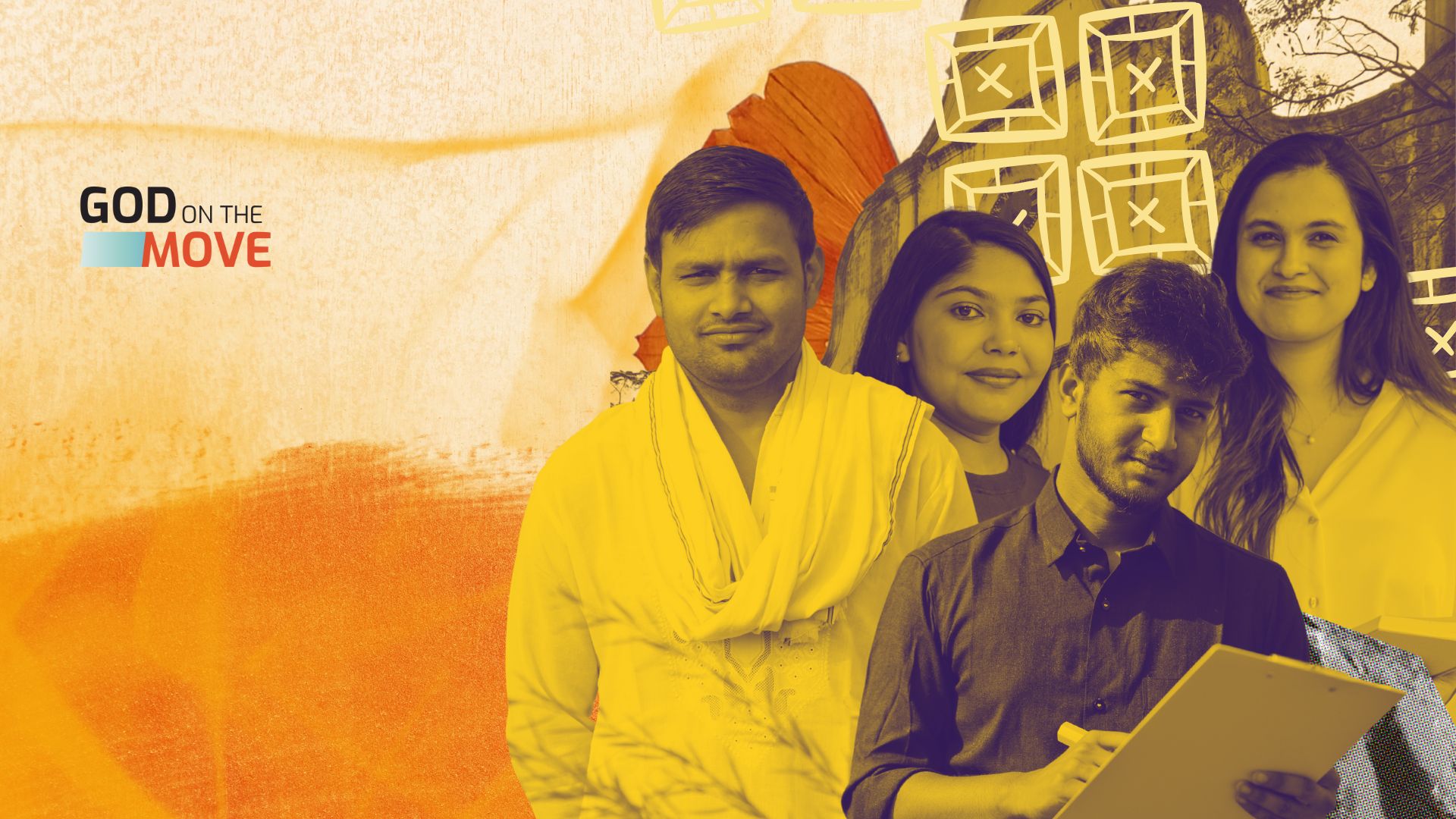‘The ground is trembling. Can you feel it?’
When Sarah Breuel spoke these words at the Fourth Lausanne Congress, she wasn’t describing a distant spiritual earthquake—she was speaking of the moment we are living in right now, one that is already shaking the world. And among the most powerful tremors of the present moment stands an unlikely army: Generation Z (those born from 1997 to 2012) of South Asia—a vibrant and determined force at the forefront of God’s unstoppable movement today.
South Asia, with Gen Z making up nearly 30% of its population,1 stands at a crossroads. In our church pews and on our streets, a fire is spreading. The question is, will we fan these flames or turn away from their heat?
Beyond the Stereotypes: The Heart of Gen Z

We’ve heard the labels popularly applied to Gen Z. ‘Digital zombies.’ ‘The lost generation.’ ‘Screen addicts disconnected from reality.’ And especially in the honour-shame cultures of South Asia, ‘These youngsters who don’t listen and don’t respect us.’ They have been written off as the generation that traded human connection for digital likes, faith for skepticism, tradition for rebellion.
How wrong we’ve been!
Far from being mindless media consumers, Gen Z is highly self-aware. Their inherent skepticism isn’t a sign of disengagement, but of deep critical thinking.
They don’t just consume information—they dissect it, question it, and challenge its very foundations.
And here’s the profound irony: This very skepticism has led them on a desperate search for an objective moral code. In a world of AI deepfakes, shifting narratives and relative truth, they’re yearning for something absolute, something unchanging.
Kenneth, a 23-year-old IT professional from India, articulates this beautifully: ‘We have this constant hunger for moral values that we need to live by,’ his words cutting through the static of stereotypes. This isn’t the voice of someone lost—it’s the voice of someone searching.
Sound familiar? Perhaps they’re not so different from generations past. As Ecclesiastes 3:11 reminds us, God has ‘set eternity in the human heart’—something that’s true across generations. The search for meaning, for purpose, for something greater than ourselves is as old as humanity itself.
The Paradox That Breaks our Heart
Emna, 28, a Gen Z mathematician from Pakistan, speaks of her peers with a wisdom that defies her years. Yes, they’re the most technologically connected generation in history. Yes, they spend more time on screens than they do sleeping. But beneath the blue light of their devices burns a desperate yearning for something screens can’t provide—authentic connection, deep belonging, and unshakeable truth.
But beneath the blue light of their devices burns a desperate yearning for something screens can’t provide—authentic connection, deep belonging, and unshakeable truth.
Here’s the beautiful tragedy of Gen Z: They’re simultaneously the most connected and the loneliest generation we’ve ever seen.² Depression and anxiety shadow their steps. But in this vulnerability lies their strength—they’re not afraid to admit they’re broken, not ashamed to say they need help.
‘We don’t like being lectured to,’ Kenneth says with refreshing honesty. ‘We want to be part of the conversation.’ They’re tired of being talked at, and hungry to be talked with.
The Church’s Blind Spot

Blessing, 28, a Gen Z pastor from Sri Lanka, leans forward when he speaks about his generation. ‘Gen Z is a very interesting group. This is a generation that wants to take risks. They want to be part of the things.’
The tragedy is that many of our churches are missing this entirely. We’ve created programs when Gen Z want presence. We’ve offered lectures when Gen Z crave conversations. We’ve given them rules and regulations instead of the relationships they so desperately crave.
What They’re Really Asking For
Strip away the stereotypes, and Gen Z’s needs and desires are startlingly simple.
1. Authenticity That Bleeds
They want real faith—not Instagram-perfect churchesque Christianity, but a genuine walk with God that acknowledges struggles, doubts, and imperfections. They’re looking for leaders who are willing to be vulnerable, to show their scars, to demonstrate that faith isn’t about being perfect, but about being transformed. In a world of filtered realities, they’re craving raw, unvarnished truth.
2. Trust That Empowers
‘Give us opportunities, seriously, get me involved in ministry,’ Blessing pleads. This is more than a request—it’s a manifesto. Gen Z doesn’t want to be spectators or ‘future’ leaders; they want to be active participants now.
They’re seeking churches that will trust them with meaningful responsibilities, that will see their potential and give them space to grow, to fail, and to learn.
Gen Z doesn’t want to be spectators or ‘future’ leaders; they want to be active participants now.
3. Mentorship That Transforms
As Kenneth beautifully describes his relationship with his pastor, ‘He’s not teaching a class or giving me a lecture. He’s inviting me to his home, having dinner with me, just making me feel like I’m part of something.’ This is the essence of what they’re seeking—not just instruction, but genuine relationship. They want mentors who will walk alongside them, who will listen as much as they speak, who will help them navigate the complex landscape of faith in a rapidly changing world.
The Moment of Convergence

This moment, with Gen Z and the South Asian church—this is more than a generational shift. It’s a divine intersection where the restless spirit of Gen Z meets the eternal heartbeat of God’s mission. We stand at a precipice of unprecedented potential, where the church isn’t just called to observe a generation but to participate in its transformation, and also to be transformed by it.
The Spirit of God has never been confined by our institutional boundaries or generational limitations. He moves like the wind, unpredictable yet purposeful, selecting the most unlikely vessels to carry his message. And right now, he’s selecting Gen Z—with their raw honesty, their digital fluency, and their unapologetic hunger for authenticity.
Every sceptical question, every technological disruption, every moment of vulnerability is an invitation. An invitation to reimagine discipleship, to restructure outdated methods, and to co-create a faith journey that speaks directly to the heart of a generation longing for genuine encounters.
For the South Asian church, Gen Z isn’t a challenge to be managed. It’s a prophetic moment to be embraced. Every sceptical question, every technological disruption, every moment of vulnerability is an invitation. An invitation to reimagine discipleship, to restructure outdated methods, and to co-create a faith journey that speaks directly to the heart of a generation longing for genuine encounters.
The rumbling continues. Not as a threat, but as a promise.
Are we listening?
Endnotes
- data.worldbank.org/indicator/SP.POP.TOTL?locations=8S, cia.gov/the-world-factbook/references/population-pyramids-by-region/ *Author’s calculations of Gen Z data taken from total data.
- socialself.com/loneliness-statistics/

